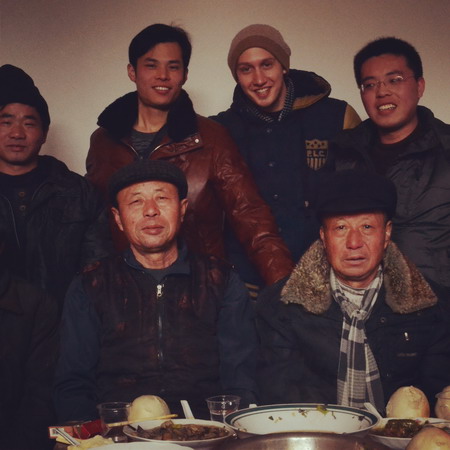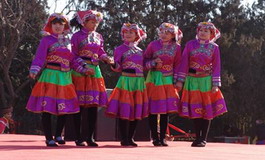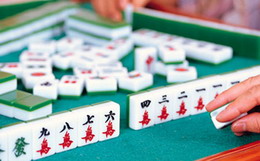
A new hometown in Heze

For the past three years Chinese New Year came and went, and I hadn't lit a single fire cracker or wrapped a tiny dumpling. My fears of congested railways and inflated hotel prices kept me firmly planted in an apartment near the northeast fifth ring road. There on the nineteenth floor, the distant noise of jubilation reminded me of news coverage from the Middle East.
But this year my friend Scotty convinced me to tag-a-long as he made the trip back home. Scotty's from Shandong, the cradle of Chinese civilization, the hometown of Confucius. In all of China there are two provinces reputed for good people. The first is Hebei. The second is Shandong, and Scotty lives up to the reputation. Every year he invited me to his hometown Heze, and every year I found a reason not to go. This time I seized the opportunity. Next year he would probably be married and nursing a family. This was my last chance.
My friends and coworkers started to share their plans: a trip to Paris, the Philippines, Hong Kong, Canada. Everyone that heard I was going to Heze had only one question: why? One of my coworkers was convinced I needed to bring all the food I would eat. She believed Heze had been left behind during China's thirty years of economic progress.
Scotty often spoke frankly of his upbringing, and I carried no illusions to the nature of the trip: outdoor restrooms, no heater, no other foreigners. To most people my plans sounded miserable, but one hasn't lived in China until joining the world's largest migration pattern, taking a train to a bus to a taxi to your mother at the stove cooking all the food you've missed all year.
A light rain accompanied us on the journey. I slept whenever I found myself in a seated position. After arriving at Heze, I started a routine that would last the entire trip: I would wait in hiding while Scotty would find a driver. I feared otherwise they might gouge the price, and the plan worked every time much to the chagrin of our drivers.
 |
 |


